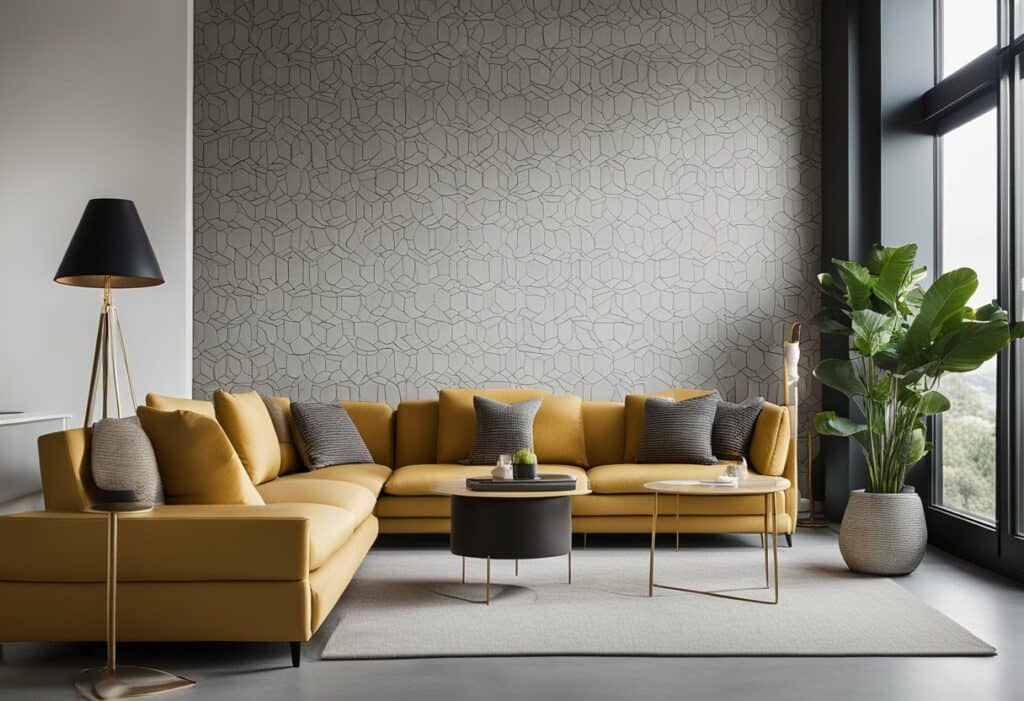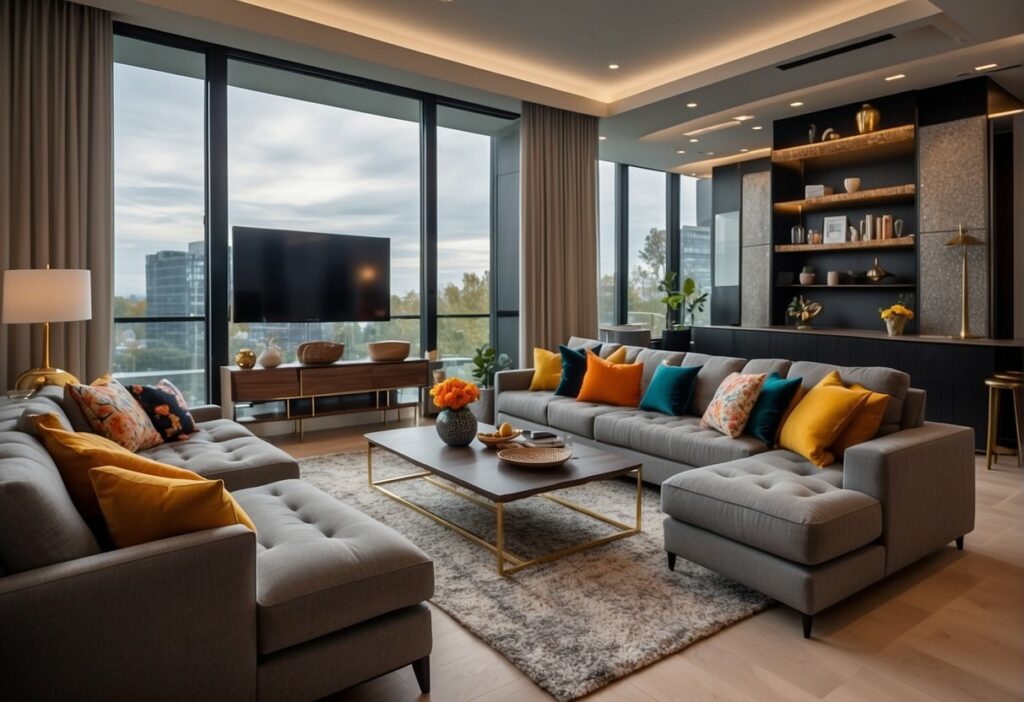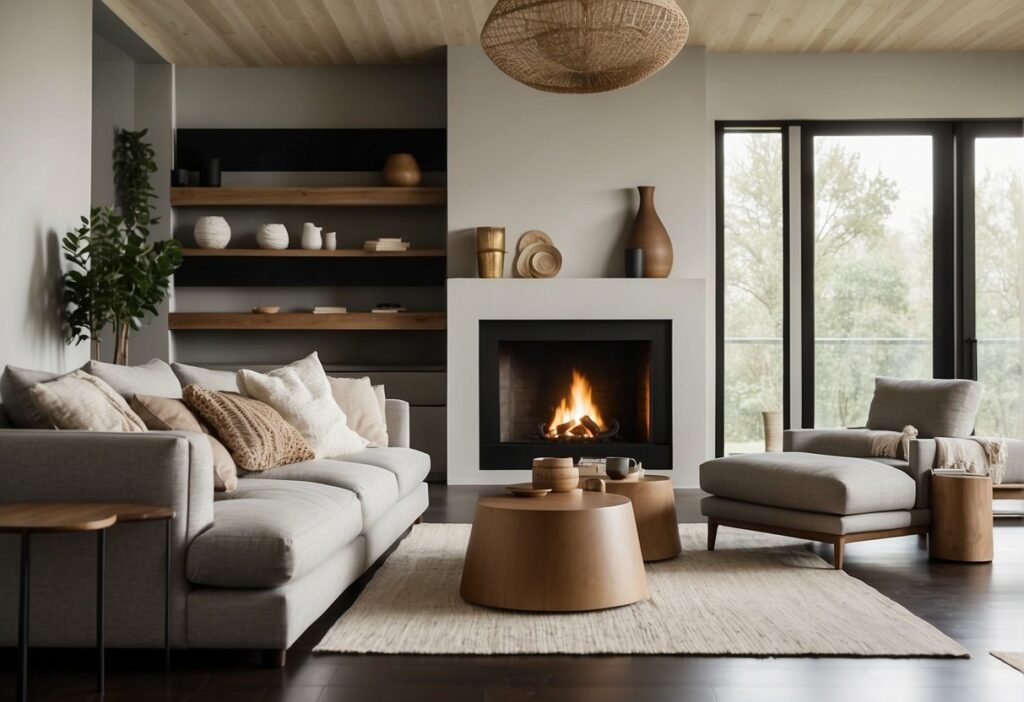Characteristics of Interior Designers: Unlocking the Traits of Successful Creatives
Interior designers are professionals who are responsible for creating beautiful and functional spaces in homes, offices, and other buildings. They use their creativity, technical skills, and knowledge of design principles to develop plans and select materials that will enhance the look and feel of a space. If you are considering a career in interior design, it is important to understand the essential qualities that are needed to succeed in this field.

One of the most important qualities of an interior designer is creativity. You will need to be able to come up with unique and innovative ideas that will make a space stand out. In addition, you will need to have a strong sense of style and be able to work with different colours, textures, and materials to create a cohesive look. You should also be able to visualise how different elements will come together in a space and be able to communicate your ideas effectively to clients.
Another key quality of a successful interior designer is attention to detail. You will need to be meticulous in your work and ensure that every element of a design is carefully considered. This includes everything from the placement of furniture to the selection of lighting fixtures. You should also be able to anticipate potential issues that may arise during the design process and be prepared to make adjustments as needed.
Key Takeaways
- Creativity is an essential quality for interior designers, who need to be able to come up with unique and innovative ideas.
- Attention to detail is also crucial, as designers must ensure that every element of a design is carefully considered.
- Professional development and adaptability are important for interior designers to stay up-to-date with new trends, technologies, and techniques.
Essential Qualities of an Interior Designer

Are you interested in becoming an interior designer? If so, there are certain essential qualities you need to possess to succeed in this field. In this section, we will discuss the key qualities of a successful interior designer.
Artistic Flair and Creativity
One of the most important qualities of an interior designer is artistic flair and creativity. As an interior designer, you need to have an eye for art and design concepts. You should be able to come up with innovative ideas and have a strong artistic vision. You need to be able to draw inspiration from a variety of sources to create a unique and aesthetically pleasing space.
Technical Skills and Industry Knowledge
In addition to artistic flair, interior designers also need to have strong technical skills and industry knowledge. This includes knowledge of building codes, interior design certification, and licensure. You should also be familiar with sustainability and industry trends. Technology plays a vital role in the interior design field, and interior designers need to be proficient in computer-aided design (CAD) and design software.
Business Acumen and Client Focus
Interior design is not just about creating beautiful spaces, but it is also a business. Therefore, interior designers need to have strong business acumen and client focus. This includes project management, marketing, and client relations. Effective communication is key to building strong relationships with clients and delivering projects that meet their needs. Interior designers need to be dedicated to providing excellent customer service and have strong communication skills.
In summary, to become a successful interior designer, you need to possess a combination of artistic flair, technical skills, and business acumen. You should have a keen eye for detail, be organized, and possess strong leadership qualities. With dedication and hard work, you can succeed in the interior design field and create beautiful spaces that meet your clients’ needs.
Professional Development and Adaptability

As an interior designer, continuous learning and adaptation are crucial to stay up-to-date with the latest industry trends and provide clients with the best possible service.
Continuous Learning and Adaptation
To meet the needs of your clients, you must have a passion for design and be willing to learn new things. You must stay up-to-date with the latest fabrics, finishes, and accessibility standards. You should also have a good understanding of design principles, such as balance, symmetry, and proportion. By keeping an open mind and being flexible, you can adapt to new trends and meet the changing needs of your clients.
Collaboration and Networking
Collaboration and networking are essential for interior designers to grow their careers and build successful partnerships. By working with contractors, architects, and other professionals, you can create a team that can bring your designs to life. You should also have excellent communication and teamwork skills to work effectively with your clients and build strong client relations.
To stay relevant in your field, you should consider obtaining certifications and completing internships. This will help you gain practical experience and develop problem-solving skills. You should also have an imaginative and positive attitude, be enterprising, and have the ability to influence and persuade others.
In summary, to be a successful interior designer, you must have a passion for design, be adaptable, and continuously learn and develop your skills. By collaborating with others and building strong client relationships, you can create designs that meet the needs of your clients while staying true to your original vision.
Frequently Asked Questions

What essential skills should every interior designer possess?
To be a successful interior designer, you need to have a range of skills. These include creativity, problem-solving, attention to detail, and excellent communication skills. You should also have a good understanding of colour, texture, and space. Knowledge of design software such as AutoCAD is also essential.
Which personality traits are most beneficial for a career in interior design?
Interior designers need to be creative, imaginative, and have a keen eye for detail. They must also be able to work well under pressure, be organised, and have excellent time management skills. Strong interpersonal skills are also important as they need to communicate effectively with clients and other professionals.
What strengths do successful interior designers typically exhibit?
Successful interior designers are typically adaptable, able to work on a variety of projects, and able to manage their time effectively. They are also able to work well under pressure, meet deadlines, and work collaboratively with others. They are creative problem solvers, able to come up with innovative solutions to design challenges.
Could you list the key qualities that make an interior designer stand out?
The key qualities that make an interior designer stand out include a strong design aesthetic, excellent communication skills, a good understanding of the latest design trends, and the ability to work collaboratively with others. They should be able to listen to their clients’ needs and translate them into a design that meets their requirements.
What soft skills are crucial for an interior designer to thrive in the industry?
Soft skills are crucial for an interior designer to thrive in the industry. These include good communication and interpersonal skills, the ability to work under pressure, excellent time management skills, and the ability to work collaboratively with others. They should also be able to handle constructive criticism and be open to feedback.
How do personal attributes impact the effectiveness of an interior designer?
Personal attributes such as creativity, adaptability, and problem-solving skills can have a significant impact on the effectiveness of an interior designer. A designer who is creative and adaptable can come up with innovative solutions to design challenges, while a designer who is a good problem solver can overcome obstacles and find solutions to design problems. Good communication skills and the ability to work collaboratively with others are also crucial for success in the industry.



